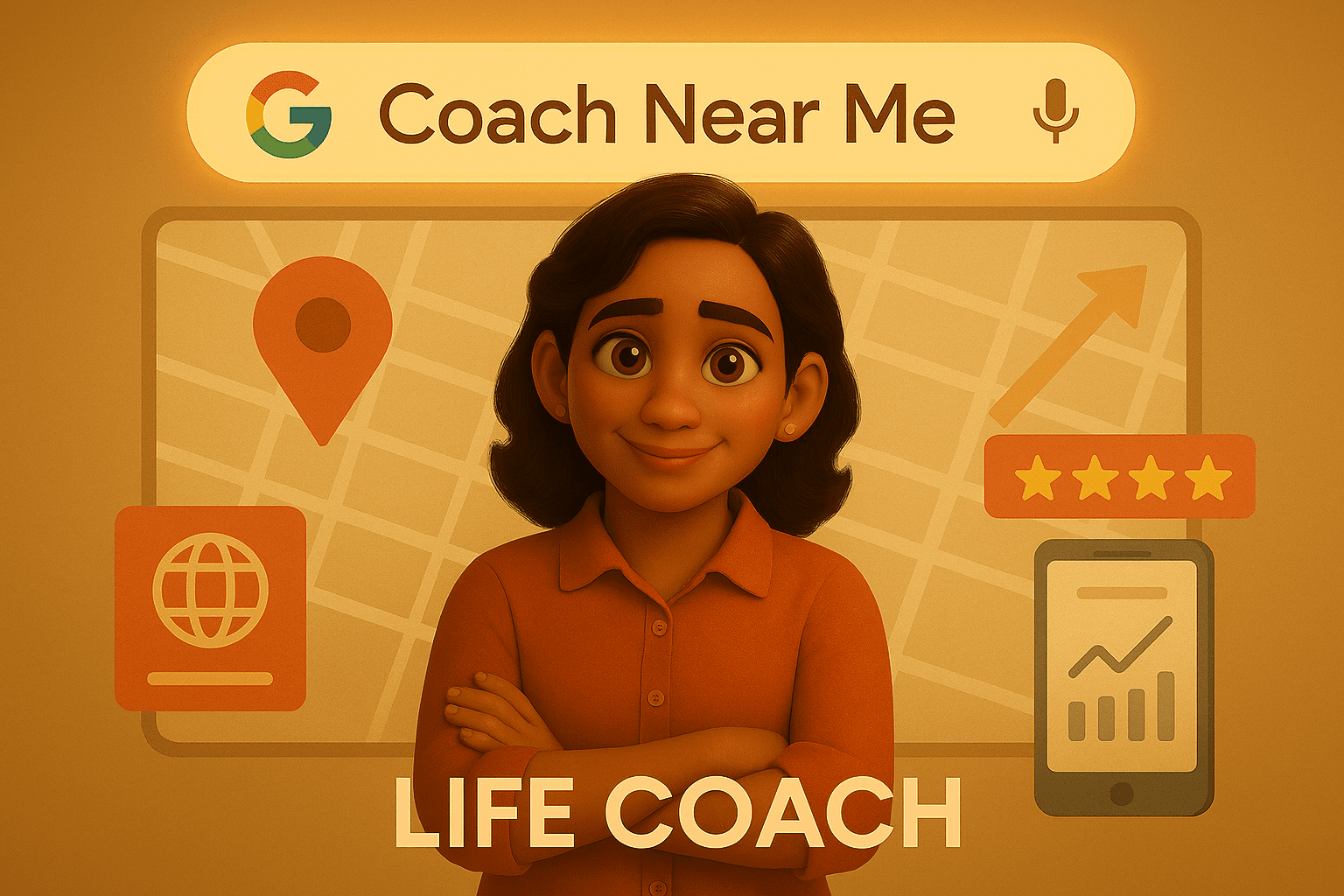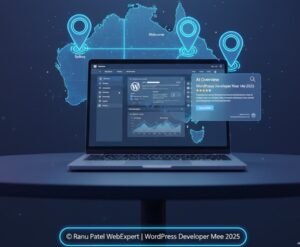Introduction
If you’re a coach trying to get discovered online, relying only on referrals or Instagram is not enough anymore.
In 2025, Google’s AI Overview and local search play a key role in how potential clients find coaches near them. Whether you’re a life coach in Austin or a business coach in NYC, the way you appear in local search results impacts your visibility — and your bookings.
Here are 7 practical, proven local SEO tips to help your coaching website rank and convert.
1. Set Up and Optimize Your Google Business Profile
This is non-negotiable.
-
Add your full business name, location, and website link
-
Use the right category (e.g., Life Coach, Business Coach, Career Coach)
-
Upload real photos — workspace, testimonials, or you in action
-
Add keywords in the description:
“Life Coach in Austin for anxiety and mindset transformation”
Pro tip: Post weekly updates or tips — Google tracks activity.
2. Use Location-Based Keywords Strategically
Stop writing vague content like “I help people transform.” Instead, be specific.
Examples:
-
“Career coach in Chicago”
-
“Executive coaching services near me”
-
“Mindset coach for women in San Diego”
Add these naturally in:
-
Homepage
-
Service pages
-
Blog content
-
Testimonials
-
FAQs
3. Get Listed on Local Directories (Geo + Niche)
This builds NAP (Name, Address, Phone) consistency and trust.
Start with:
-
Coach-specific directories: Noomii, LifeCoachHub
-
General: Yelp, Alignable, Nextdoor
Make sure:
-
Your name and info match your Google listing
-
You use local keywords in your description
-
You collect reviews on these platforms
4. Collect Client Reviews That Mention Location + Results
Google values reviews with keywords and local signals.
Ask clients to mention:
-
Where they’re from
-
What result they achieved
-
Your specific service
Example:
“Working with Ranu in New York helped me build confidence and land new executive clients.”
Add review links in emails, thank-you pages, or during offboarding.
5. Create City-Specific Pages or Landing Sections
Instead of one generic service page, create city-level SEO assets.
Example pages:
-
/life-coach-austin -
/business-coach-nyc -
/career-coach-miami
Each should answer:
-
What you offer in that city
-
Who you help
-
Proof or testimonials from locals
-
CTA to book a call
This boosts relevance for “coach near me” searches.
6. Blog Around Location-Based Problems + Search Trends
Google favors fresh content that answers real questions.
Post blogs like:
-
“Top 5 Mindset Challenges Women Face in San Diego”
-
“How Life Coaching in Austin Boosts Mental Health”
-
“Why Chicago Coaches Need SEO, Not Just Instagram”
End with a CTA:
👉 “Want clients to find you faster? Book a free audit now.”
7. Add FAQ Schema + Location-Relevant Questions
Structured data (like FAQ schema) helps Google AI understand your page.
Add FAQs such as:
-
“What does a business coach in Miami do?”
-
“Is coaching worth it in 2025?”
-
“How does SEO help a coach near me get clients?”
Use Yoast or RankMath to enable schema and appear in AI Overviews.
FAQs: Local SEO for Coaches – 2025
Local SEO helps your coaching business appear when someone searches terms like “life coach near me” or “business coach in Austin.” It improves visibility in Google Maps, AI Overviews, and local search results.
No. Even if you coach online, many clients search for coaches in their area due to trust and relevance. Appearing in local results increases your chances of getting found — even by virtual clients.
Results usually show up in 3–6 months, depending on your niche, location, and competition. But setting up basics like Google Business Profile can show improvements in just weeks.
It depends on your strategy. Some coaches start with DIY (blog + GBP + reviews), while others invest in monthly packages starting around $300–$700/month for local SEO setup and growth.
Use both, but SEO has a longer life. A single blog post or optimized page can rank for months or years. Social is fast, but disappears quickly. Start with SEO, then support with content repurposing.
Conclusion
Local SEO isn’t just a strategy. It’s your silent salesperson — showing up in Google when potential clients search “coach near me” or “life coach in [city].”
If you’re a coach in the USA trying to grow in 2025, focus on what works:
-
Optimize your Google Business Profile
-
Speak the language your audience searches
-
Create content for your city, not the whole world
-
Let your reviews and blogs prove your value
This isn’t about ranking for everyone.
It’s about getting found by the right someone.
If you’re unsure where to start or what’s holding your site back, I’ll help you figure it out.
Book your free 30-min SEO audit for coaches — no jargon, no pressure.
Let’s make your coaching website work harder in 2025.








